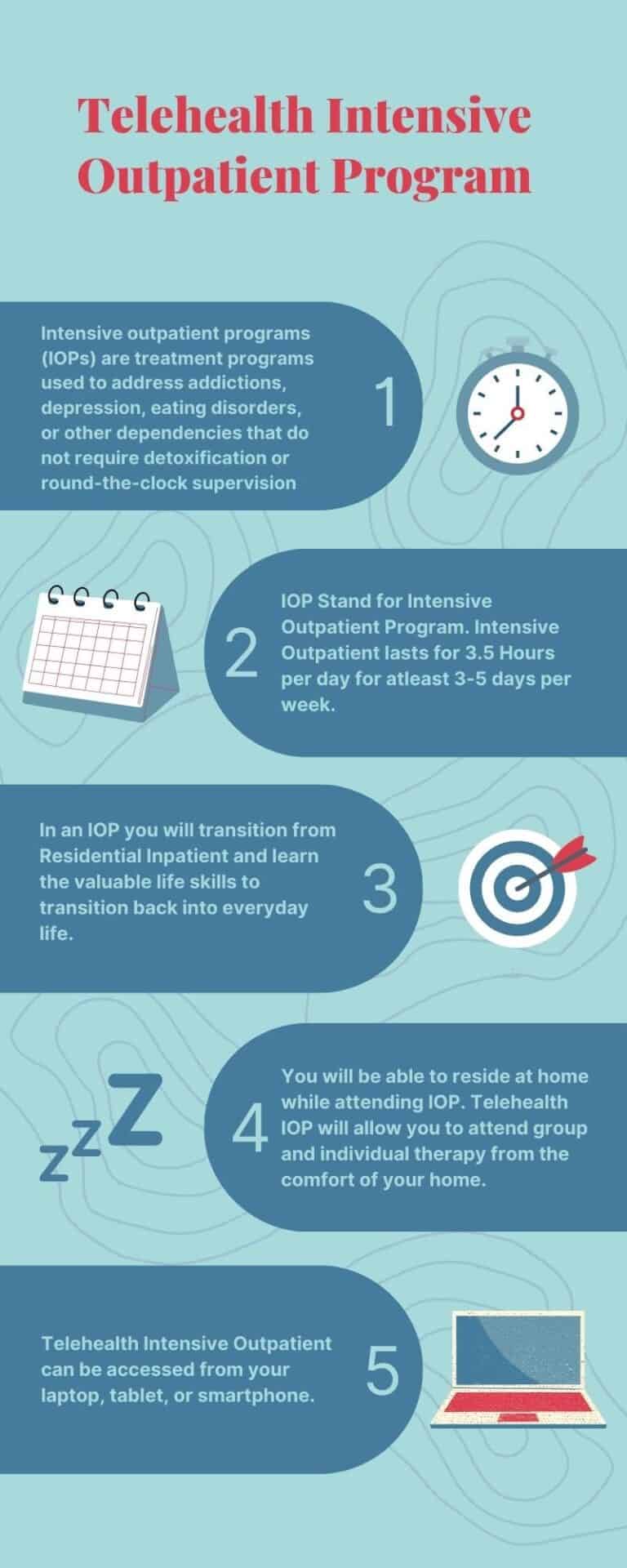Navigating the Complexities of Twin Diagnosis Therapy Within an Extensive Outpatient Program Setting
In the world of psychological health and wellness and addiction therapy, the crossway of dual diagnosis presents a nuanced challenge that requires a comprehensive and customized method. Within the confines of an Extensive Outpatient Program (IOP) setting, the intricacies of dealing with co-occurring mental wellness conditions and substance make use of disorders call for a fragile balance of expertise and sources to navigate. The assimilation of evidence-based techniques, collaborative initiatives among multidisciplinary groups, and a keen understanding of the special needs of each person are necessary parts in properly handling twin diagnosis within an IOP structure. By exploring the ins and outs of twin diagnosis therapy within this extensive outpatient context, a clearer course emerges towards all natural and sustainable healing for those facing these intertwined difficulties.
Twin Medical Diagnosis Introduction
What is the value of comprehending twin medical diagnosis in mental health treatment? Dual diagnosis describes the co-occurrence of a substance use condition and a mental health and wellness condition in a person. It is critical to recognize and address this comorbidity as it can considerably affect the efficiency of mental health and wellness treatment. Without appropriate identification and management of both conditions, individuals might battle to attain lasting recuperation and security.
Recognizing twin diagnosis is important as it calls for a thorough and incorporated method to therapy. By acknowledging the interaction between material usage and mental health and wellness, healthcare companies can customize interventions to fulfill the unique requirements of each individual. This alternative approach not just addresses symptoms however also targets underlying variables that add to the twin diagnosis.
In addition, without treatment twin diagnosis can lead to a cycle of regression and worsening mental wellness signs and symptoms. By acknowledging the intricacy of dual diagnosis and giving specialized care, healthcare professionals can support individuals in attaining lasting healing and improved mental health.
Tailored Therapy Plans
Acknowledging the complex interaction between substance usage disorders and mental health and wellness problems, the development of customized therapy strategies is extremely important in dealing with the complexities of double medical diagnosis in psychological health therapy. Customized therapy strategies are individualized approaches that consider the unique requirements, difficulties, and objectives of people dealing with double medical diagnosis. These strategies are created collaboratively by a multidisciplinary group of professionals, including psychiatrists, psychologists, social workers, and addiction specialists, to guarantee extensive and integrated care.
Tailored therapy strategies typically involve a mix of treatments, medications, and behavioral interventions that target both the material usage condition and the mental health problem simultaneously. These strategies may include cognitive-behavioral therapy, dialectical behavior modification, medication-assisted therapy, individual therapy, team therapy, and family treatment, amongst other evidence-based treatments. By tailoring therapy methods to individual circumstances, customized plans can deal with the root causes of double medical diagnosis, promote lasting recovery, and boost total high quality of life for individuals dealing with co-occurring problems.
Integrated Treatment Method

In addition, the social element of incorporated care entails resolving ecological aspects that might add to the advancement or perpetuation important use and mental health and wellness problems. This can consist of family characteristics, real estate instability, or absence of social assistance. By incorporating social interventions like family treatment, occupation assistance, and area resources, the therapy becomes a lot more all natural and customized to the individual's particular needs. Overall, an incorporated treatment technique in twin medical diagnosis treatment within an intensive outpatient program setting aims to offer comprehensive, effective, and personalized treatment to individuals encountering co-occurring problems.
Obstacles in IOP Establishing
In the context of double medical diagnosis therapy within an intensive outpatient program, navigating the intricacies of co-occurring substance use conditions and mental wellness conditions presents considerable challenges. One additional hints of the key difficulties in the IOP setup is the coordination of care between psychological wellness professionals and drug abuse specialists to make certain a comprehensive therapy method. This calls for efficient communication, cooperation, and a deep understanding of exactly how these conditions engage and influence each various other.
In addition, the rising and falling nature of substance usage conditions and psychological health and wellness problems adds another layer of intricacy - Intensive Outpatient Program (IOP). Clients in an IOP might experience unexpected changes in their symptoms or compound yearnings, calling for timely treatment and modification of therapy techniques. Balancing the intensity of therapy and assistance while allowing customers the flexibility to view handle their day-to-day obligations can be a fragile equilibrium to maintain
In addition, attending to preconception and resistance to treatment within the IOP setup can impede development. Some people may be hesitant to divulge their twin diagnosis or may really feel embarrassed, hindering their interaction in the healing process. Getting rid of these obstacles requires a supportive and non-judgmental atmosphere that promotes trust fund and visibility.

Collaborative Professional Efforts

Collaborative efforts additionally reach normal communication and info sharing among employee to guarantee a natural treatment strategy - Intensive Outpatient Program (IOP). This may entail case seminars, joint sessions with the person, or shared paperwork to track progression and adjust treatment methods as needed. Furthermore, cooperation may include entailing various link other healthcare experts such as medical care physicians or household therapists to offer alternative assistance to the patient. Eventually, an unified front of specialists interacting improves the performance of double medical diagnosis treatment within an intensive outpatient program.
Final Thought
To conclude, reliable twin medical diagnosis therapy within an extensive outpatient program setup needs tailored therapy strategies and an incorporated treatment strategy. Obstacles may emerge in this setting, however joint efforts amongst specialists can assist browse these complexities. By resolving the distinct requirements of individuals with co-occurring psychological wellness and compound use conditions, IOP programs can supply thorough and holistic care to sustain recovery and total well-being.